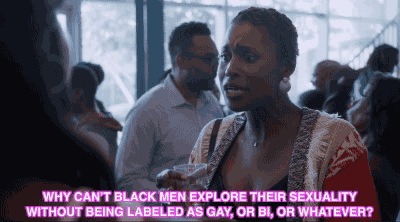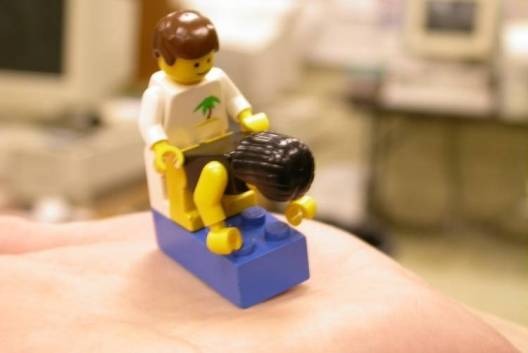In a few months, it will be ten years since I moved to Atlanta to start a new chapter in life. Given this, I have been thinking about the next ten years and what I ought to leave behind.
Reflecting took me back to a moment in October 2015 when I was attending a gathering of my Ph.D. cohort at our advisor’s home. I remember being nervous about speaking to one faculty member in particular because of his intense personality, yet I found myself standing with him talking about alternative academic (Alt Ac) careers. I wanted to know his thoughts on Alt Ac, a term bandied about a lot in the first few weeks of the Ph.D. program as a vocational direction. I was also curious about how I might spin my first vocation as a journalist in case this whole Ph.D. thing didn’t work out. I remember his energy and his words to me and my colleagues that evening as if it were yesterday. He said–and I’m paraphrasing because this was nearly five years ago,
“There is no plan B, you don’t do PhD work because you want to do alternative academic work, you do this work so that you achieve plan A, otherwise you may as well leave now.”
I remember being shocked at his words but also feeling like it’s just what a white male would say. A white male graduated with high honors, and thereafter landed a teaching position and then a tenure-track position and is currently a full professor. This was all within his first 10 years of holding a PhD. Given this, his dictating what we ought to desire as new PhD students seemed easier said than done. I also couldn’t help but wonder if my path was so assured as a young Black woman scholar. Thinking this way lead me to hold onto my identity as a journalist by hanging on to any opportunity I had to capitalize on that identity and turn it into work. That is why, for the better part of the last five years, and actually for the previous ten, I stayed working in the realm of journalism. Whether it was writing bit pieces, managing editorial websites for publishing companies and people, being an editor for online journals, and the list runs on. I kept myself glued to my first vocation. Yet, this also meant that my loyalties were divided between where I’ve been and where I was headed. It was the difference between resting in the comfort of what I’d known for nearly 20 years or accepting the challenge of a new realm. Recently all of this came to a head for me.
With this being the penultimate year of my Ph.D. work, I’ve had to become more precise about the return on investment that I desire. Thus, while working, writing, applying for fellowships, and living, I’ve had to think about what I want my life to look like in the decades to follow. This has become particularly important as many people ask me, “What do you want to do when you graduate?” Unequivocally I say I want to become a tenure-track professor so that I can teach, write, and speak about ethics, religion, and women, gender, and sexuality at a university or seminary. Yet what I practice is not always what I preach as I continue to hedge my bets by holding on to Plan B.
For the past few months, holding on to Plan B has looked like holding on to my position at the library like a security blanket, all the while knowing, “Everything I can do is not everything I should do.” I told my advisor this last year when she and I were strategizing about my final years in the program. I remember sitting in her office wrestling with the opportunities before me but articulating rather clearly that just because I can do something doesn’t mean I should do it. Sure, I am good at what I do in non-academic areas, but it does not mean that every opportunity presented to me to work in those areas is an expedient opportunity. This is particularly important when I reflect on the precarity of time, and how I indicate to myself and the universe what is important by what I spend the most time doing. If I am dedicating more energy to everything but the pursuit of this Ph.D., how am I sowing into the future I say I desire? Indeed some of this work is necessary because bills don’t get paid by chasing dreams. Yet, if I am not being clear about what it is I want, searching for opportunities to singlemindedly pursue it, and having faith in the pursuit, I cannot and should not expect for it to fully manifest. (Read “fully manifest” carefully, which means I could manifest something, but will it be what I know I am worth?)
So I’ve had to make a choice–and it’s not lost to me that God gives me choices time and time again. As I shared with a friend recently, “I am never forsaken,” it can be probably be argued that many of us are not forsaken; we just choose our comfort over the challenge to rise to the occasion for which God put us on this earth to meet. But that’s another post for another day. Nevertheless, similar to the choice I had to make ten years ago to leave NY and move to Atlanta to start seminary for God knows what, I have chosen to stop hedging my bets on this old life and start betting on this new life.
I did not just take ten years out of my life to be on the proverbial backside of the mountain to go back to doing the same thing. Indeed, being a journalist is who I was for some time and much of my life will be guided by those impulses–because there is always room for fair and balanced reporting, in-depth coverage, fact-checking, and good writing that everyone can read. All of those things are important to me as ways of life and I carry them with me into the academy. But what I am no longer holding onto tightly is the idea that if all else fails I’m going to fall back into the field of journalism. Instead, in the middle of a pandemic that is wreaking havoc on the academy and creating uncertainty for near-future PhDs, I’m leaning into what I want and what I’ve been working toward all along. I’m thinking about the words of that faculty member who told me in 2015 that there is no Plan B, there’s only Plan A, and he was right. There is only a Plan A, and I’m encouraging myself to believe that I can achieve the Plan A by dint of my hard work over the last decade, my gifts, and by hoping against hope that the future I want is the future I will have.
In many ways, I’m returning to the type of person I was ten years ago before I was in the throes of graduate school theological education. I was hopeful and willing to trust God with what I cannot see and that hope and trust moved me to Atlanta for ten years and set me on this incredible journey. I feel that God is again asking me to hope and dream audaciously and trust the process, but this time around to lean singularly on the last thing I was told to do. So here I am, entering the final lap of this pursuit toward a Ph.D., having decided to step away from my work in the library, having accepted the fellowship that aligns with my future goals, and that allows me the opportunity to work on this dissertation singlemindedly. I am entering the next ten years focused on the one thing I want. I am giving this work time to speak to me by only listening to it. Finally, and most importantly, I am trusting the process and trusting God in the process.

